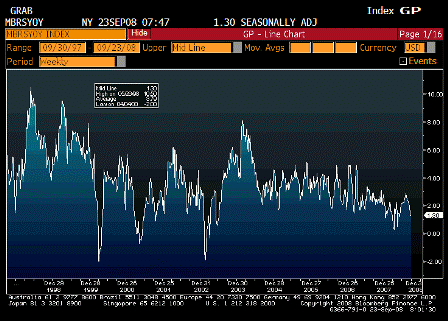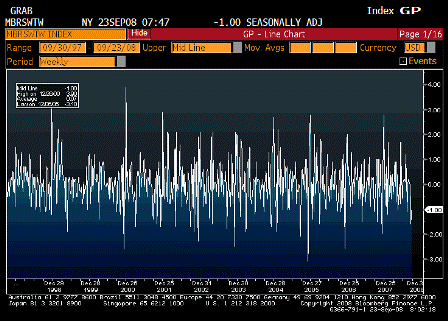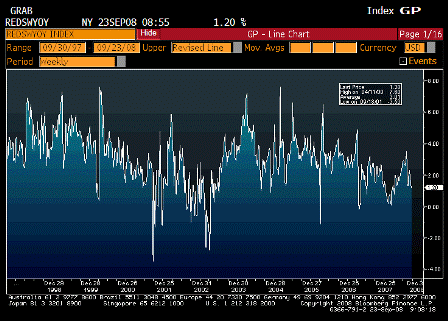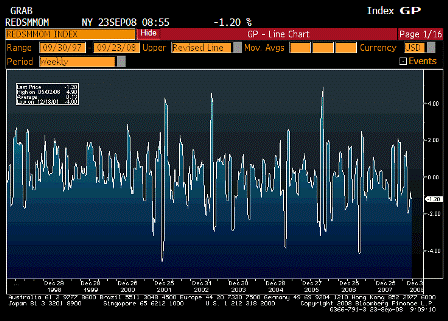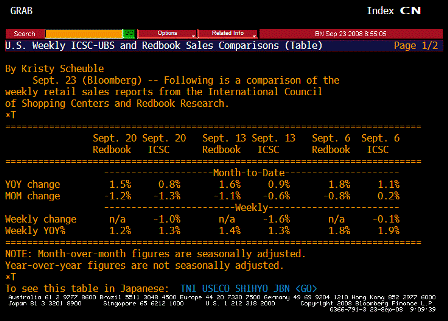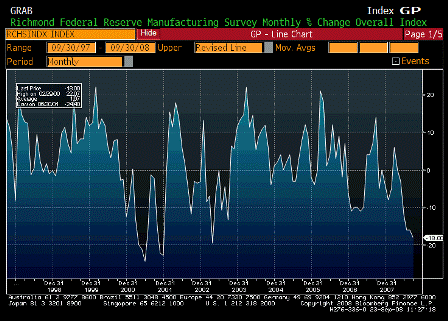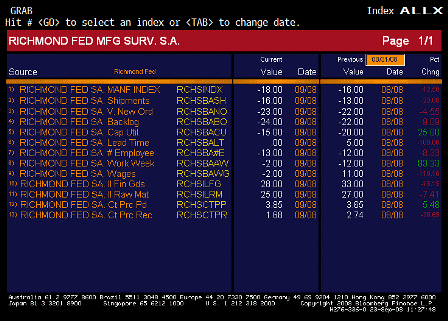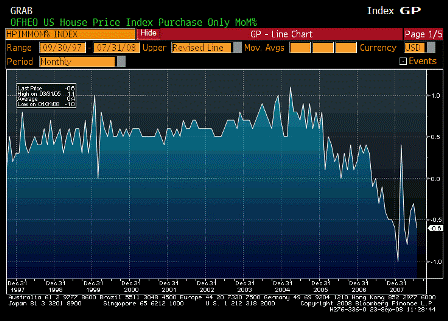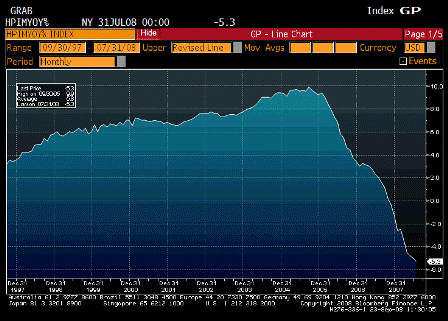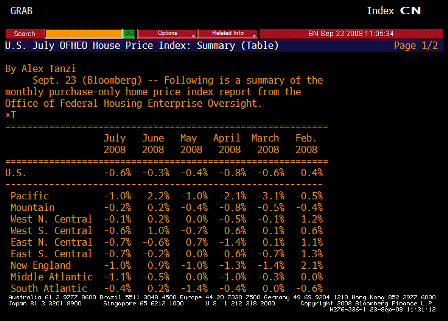It would be counter productive to add the $700 billion to the budget deficit calculation if the proposal goes through and is executed, since Congress is likely to take measures to somehow constrain spending or increase revenues to try to ‘pay for it’. This would be highly contractionary at precisely the wrong time.
Note that if the Fed buys mortgage securities it doesn’t add to the deficit, while the Treasury buying the same securities does? And in both cases treasury securities are sold to ‘offset operating factors’; either way, Fed or Treasury, the government exchanges treasury securities for mortgage securities.
When any agent of the government buys financial assets, that particularly spending per se doesn’t add to aggregate demand, or in any way or directly alter output and employment.
Yet here we are listening to the Fed Chairman, the Treasury Secretary, and members of Congress talking about $700 billion of ‘taxpayer money’ and a potential increase in the deficit of $700 billion.
And no one argues with statements like ‘it is even more than we spent in Iraq’ and ‘that much money could better spent elsewhere’. Unfortunately for the US economy, this supposed addition to the deficit is likely to negatively impact future spending, perhaps at the time when it’s needed most to support demand.
I recall something like this happened in 1937, when revenues collected for social security weren’t ‘counted’ as part of the Federal budget, and the millions collected to go into the new trust fund
were in fact simply a massive tax hike. Unemployment went from something like 12% to maybe 19% (and stayed about that high until WWII deficit spending brought unemployment down to near zero). After that happened much was written regarding public vs private accounting and the cash flow from social security and other programs was subsequently counted as part of the federal budget calculation, as it is today, and for the same reason.
[top]

